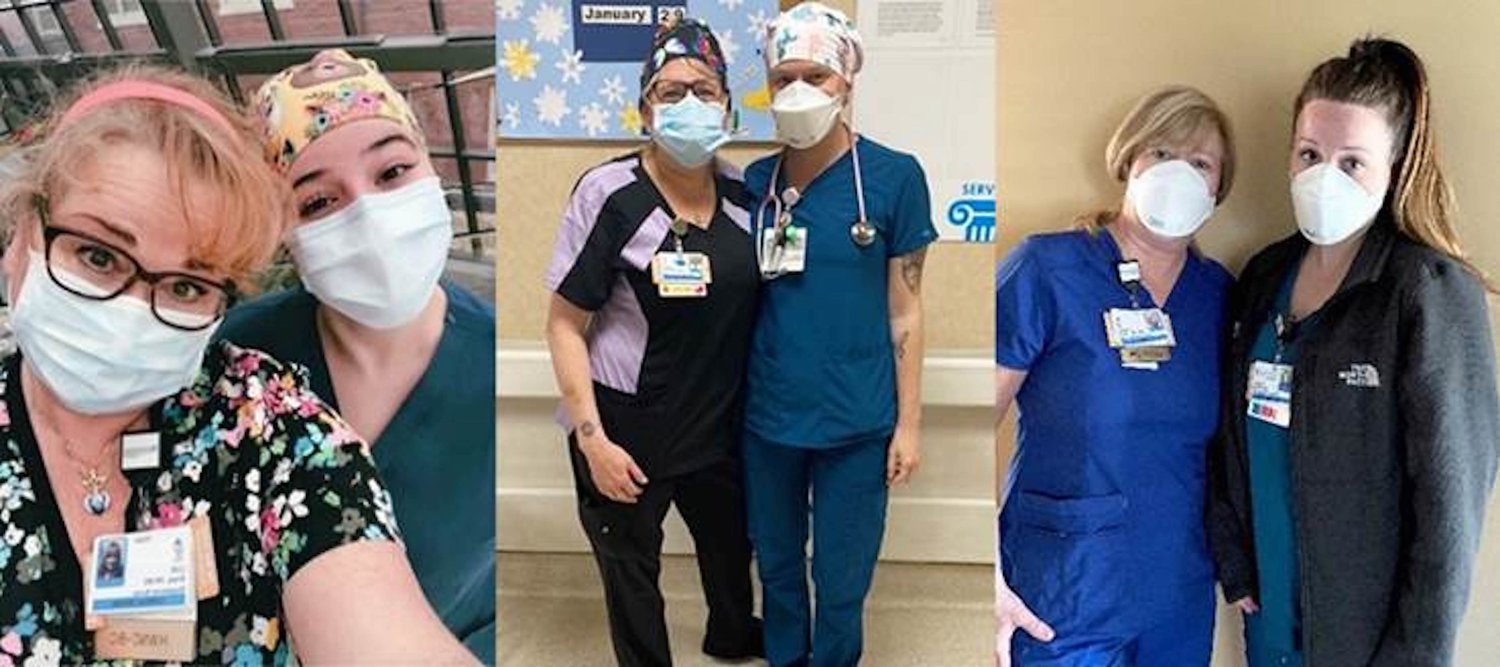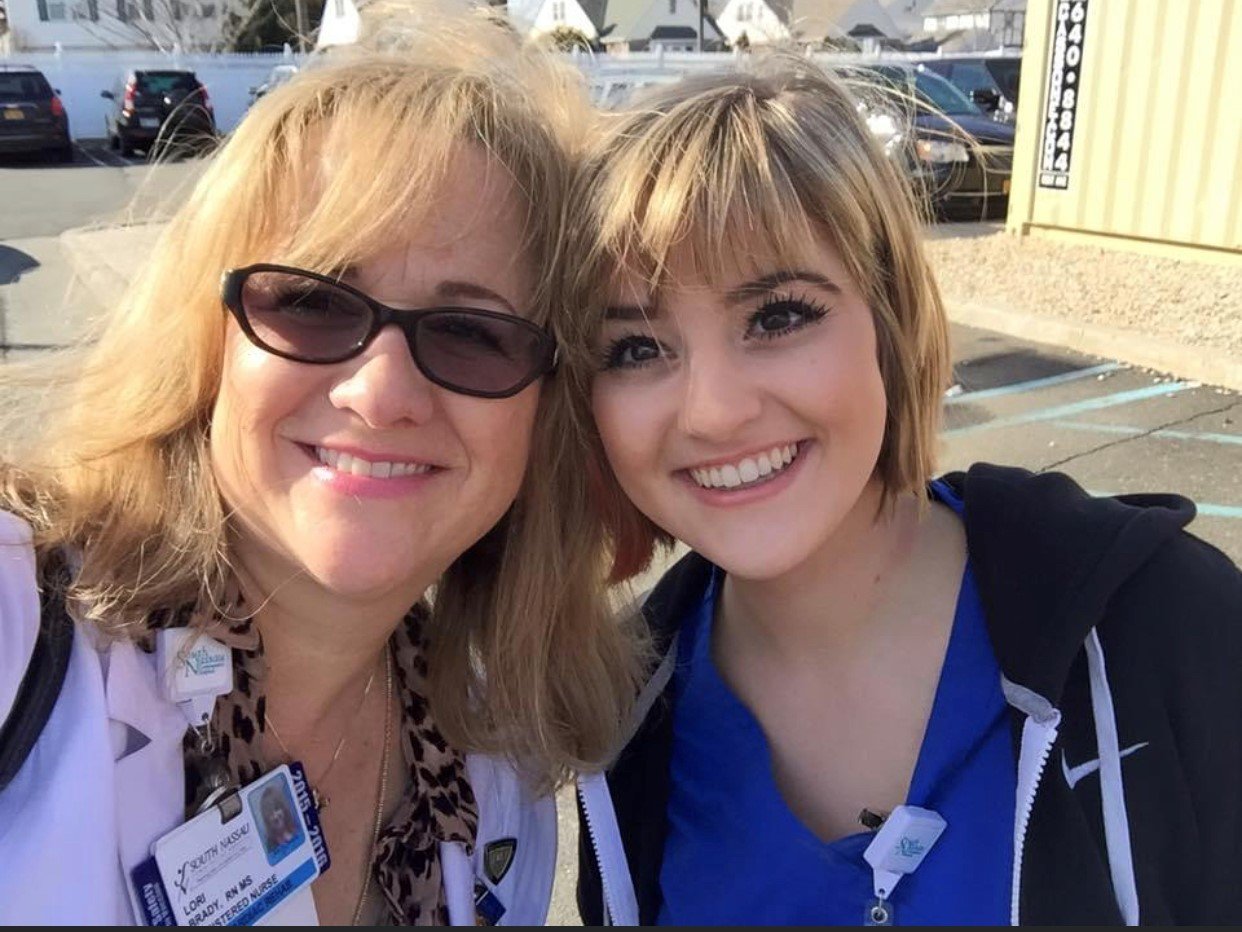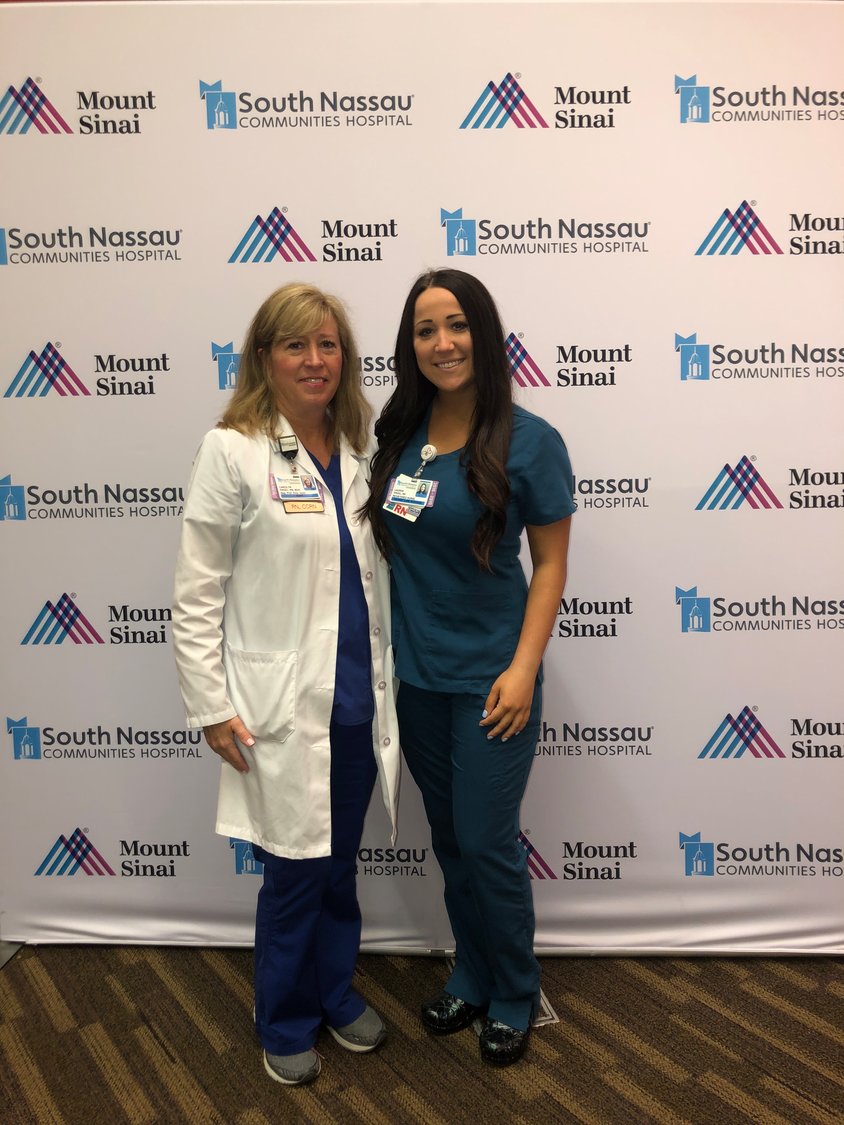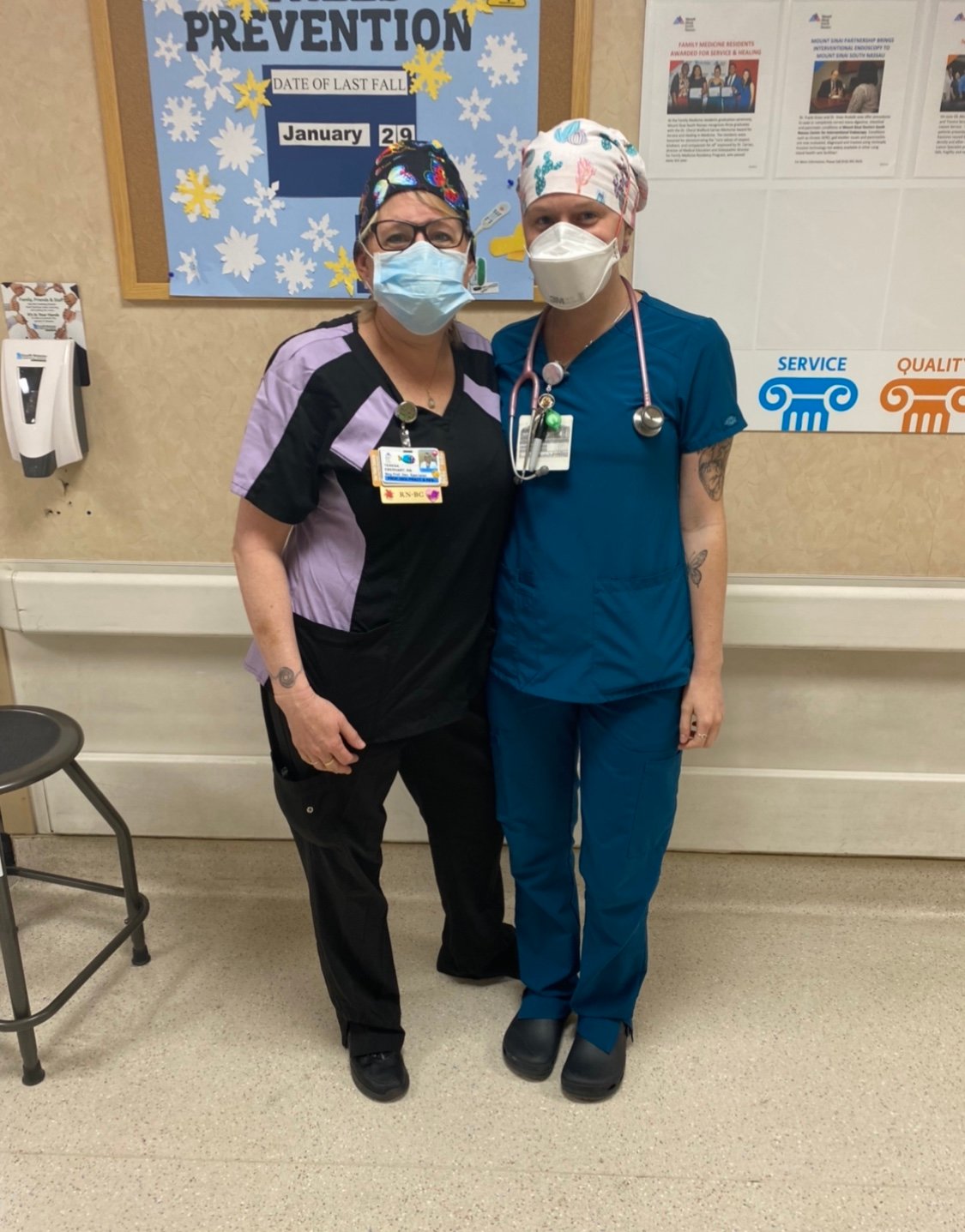Mother-daugher nurses help battle Covid-19 at Mount Sinai South Nassau in Oceanside
In 1972, Lori Brady’s father was shot and stabbed while on duty as an NYPD officer in the Bronx. Though she was only 8, she said that was the moment she decided she wanted to become a nurse.
“I couldn’t visit my father in the hospital because I was too young,” she recalled. “I helped my mother care for my father and younger siblings after the attack, and from that point on, I decided to become a nurse. I didn’t want anyone else to suffer.”
After helping her mother, Kathleen, support her father, John, and her younger siblings, John Jr., who was 4 at the time, and Christine, who was 2 months old, Brady followed her dream and became a nurse.
Years later, her daughter, Carolyn, answered the same calling, and they are now one of three mother-daughter tandems working against the coronavirus at Mount Sinai South Nassau hospital in Oceanside. Teresa and Leanne Eberhart and Carolyn and Lauren Engel are the others.
Lori Brady, 57, works at the Center for Cardiac and Pulmonary Rehabilitation, while Carolyn, 25, is undergoing orientation and will rejoin the Emergency Department in two weeks. Lori’s sister, Christine Scott, also works at MSSN, in the Education Department.
Carolyn Brady was born at MSSN in 1992, and went on to work in its Emergency Department for five years before she graduated from Molloy College in 2018. She then joined the team at St. Francis Hospital as a medical and surgical telemetry nurse for a year, but wanted to return to MSSN after the pandemic started. She was rehired on April 20.
Carolyn said her mother inspired her to become a nurse, and that observing her on the job helped shape her nursing style.
“My mom has always been my role model and best friend,” she said. “I’ve always admired her ability to show endless compassion to everyone she meets. I knew I would be able to spread the same kind of sunshine to families and patients if I followed in her footsteps, so that’s what I did.”
Lori has had many roles at the hospital over nearly three decades. For the past 17 years, she has worked in cardiac and pulmonary rehabilitation, helping patients recover after cardiac episodes or heart surgery.
These days, however, the pandemic has altered everyone’s role at the hospital, and has brought with it plenty of stress.
“One of the most frustrating things is that our nursing intuition has been blind-sided, as the patients become critically ill so quickly,” Lori said. “There are no typical warning signs that the patient is deteriorating. They are speaking to you one second, and they go into an arrest a second later. It’s very stressful, and you feel like you are working in a combat-like setting all the time.”
To stay positive, Lori said, she finds solace in praying, meditating and practicing yoga. The hospital also has a prayer group that meets twice a week to remember and honor the patients they have lost, the ones they might save and the staff, which needs strength to carry on even as they become more tired by the day.
Much like Lori Brady, Teresa Eberhart, 52, said she was inspired to become a nurse after seeing her father receive exceptional care.
“My father was very ill when I was a young child,” she said. “I saw the nurses working and caring for him. It was a powerful experience.”
Teresa’s father went on to live a full life, and she followed her passion. She has been a nurse for 32 years and is now a nurse educator, imparting knowledge to nurses of varying years of experience. She also makes sure the correct information about Covid-19 is conveyed to staff.
When her daughter Leanne, 23, told her she wanted to become a nurse, Teresa had mixed emotions, but she said they are easier to manage with both of them working a the same hospital.
“It was frightening at times, knowing what she was going to be faced with, but at other times, it’s good,” Teresa said. “She is a new nurse. I know her team looks out for her. I’m able to assist her to navigate the health care system.”
Leanne has been part of the MSSN staff for five years, and became an Emergency Department nurse in April 2019. Though they work in separate units, the Eberharts manage to make time to see each other, and together they help coronavirus patients connect with their loved ones by using an iPad.
Leanne said that growing up in a family of nurses and firefighters gave her insight into the selflessness of first responders to put strangers’ lives before their own.
“I would sit at the dinner table and hear these amazing stories of their days at work, and sure enough, I wanted to be part of that story,” she said. “It seems that saving lives is just in my blood.”
Nursing is also a family affair for Carolyn and Lauren Engel.
Carolyn. 54, has spent three decades in nursing and has worked as a nurse educator at MSSN for the last 20 years. At age 23, Lauren is the youngest critical care nurse at the hospital.
Carolyn’s time spent educating others has helped her serve as a pillar of support for her daughter.
“She is very careful and I always taught her that she has to put on her ‘life vest’ before she can save anyone,” Carolyn said. “I’ve always given her the tools to figure things out.”
Lauren is a third-generation nurse, following not only Carolyn, but also her grandmother, Maria Johansen, who served as a critical care nurse at a hospital in Brooklyn during the 1970s and ’80s. She said she also has a long list of family members who are first responders, including her father, Wade, who is a sergeant in the Malverne Police Department. Her younger sister, Jennifer, 20, is also pursuing nursing and is now a senior at Sacred Heart University in Connecticut.
While her years of on-the-job experience and having her mother there to mentor her have prepared Lauren, she said the coronavirus pandemic is like nothing she has encountered. However, thanks to a strong support system, she said, she has been able to stay positive. She added that it has been uplifting to help patients make full recoveries, but noted that it has also been “extremely difficult” to see so much death.
“I learned that it’s OK to cry,” she said. “We have a great team here. When you cry, you don’t have one shoulder to cry on, you have three or four. We know that we’ll get through this together.”

 44.0°,
Mostly Cloudy
44.0°,
Mostly Cloudy 












